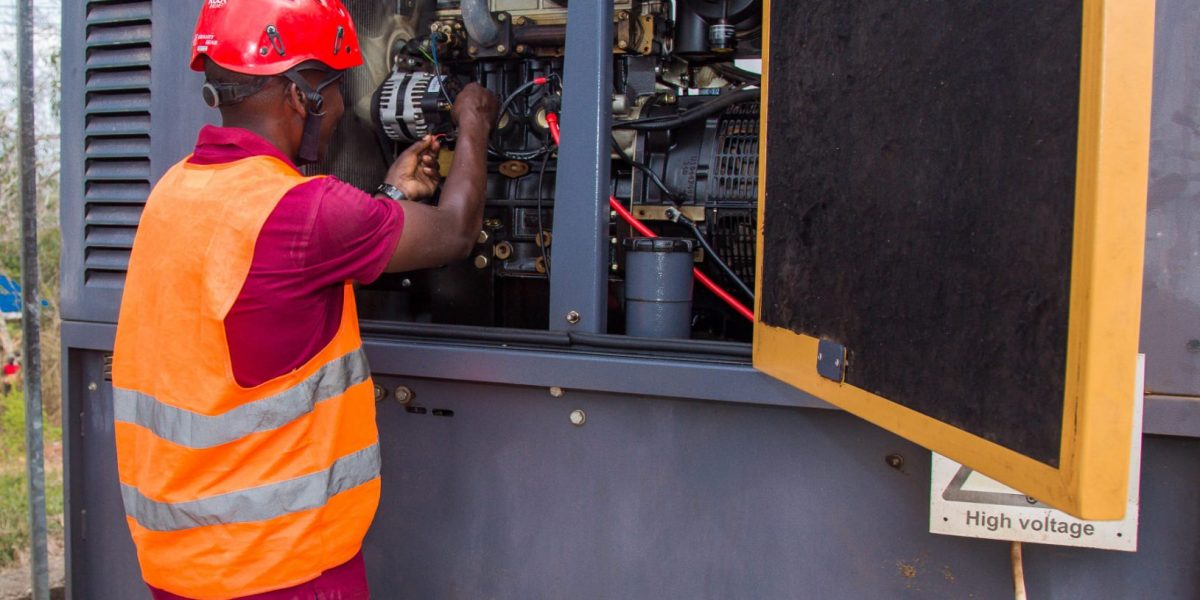As an executive decision-maker in both the telecommunications and tourism industries, Godwin Makyao could not have experienced a more diverse set of challenges as the Covid-19 pandemic hit East Africa.
The crisis has paralysed the global tourism industry. On the other hand, the reliance of all industries on the telecommunications sector has been magnified.
In East Africa, the crisis could act as a catalyst for the further development of the telecommunications industry, opening up opportunity for investors and operators in the sector.
Mr Makyao is the Founder and Executive Director of Maktech, a Tanzanian telecommunications with operations also in Mozambique. Mr Makyao believes that in the face of the crisis, the industry stood up well despite being held back in certain areas by a lack of infrastructure.
“I would say the sector has responded positively to the extent the infrastructure could allow.
“Our telecommunications industry was not ready for a pandemic such as this one. Here in Tanzania, for example, it was assumed that data infrastructure would only be required in workplaces, schools and other vital institutions; so the infrastructure was concentrated there.
“When people got confined to their homes; however, it was discovered that home data was in high demand. We are looking to close this gap to ensure that people have access to fast internet at home, the parks, the beaches and even the football pitches.”
In Tanzania, where 17 per cent of the population spread over 55 per cent of the land of the country do not have access to mobile coverage, building telecommunications infrastructure is a national priority. Tanzania’s Vision 2025 policy which intends to industrialise the Tanzanian economy is facilitating access to funding infrastructure development. The rate of change in poverty-stricken rural areas has until now been a concern, however.
“Not much has changed in Maktech during the Covid-19 crisis apart from our increased focus on the need for fast internet in rural areas”, says Mr Makyao
“Although most people in rural areas now have mobile phones, most of those are not smartphones. A scarcity of smartphones means slow internet and information deficiency. We are, therefore, faced with two problems that need solving; the need for high-speed internet in rural areas and the need for smartphones. Both of these problems need to be addressed by delivering low-cost solutions since most of the people are low-income earners.”
It is now anticipated that the telecommunications industry will develop at pace in East Africa, with changing business practices and consumer behaviour post-Covid-19 acting as a catalyst.
“Consumer behaviour will change, and demand will increase,” Mr Makyao says.
“Africans will have different expectations post-Covid -19 and will not want to go back to how things were. Before, it was a luxury for many to have internet access on their phones and in their homes. Post Covid times will change this from a luxury to a necessity. The telecom industry will now have to step up across the continent by laying down the infrastructure needed to service the demand.”
While in the telecommunications industry it is expected to be a time of growth, for the tourism industry the focus is on adaptation.
Mr Makyao explains, “When it comes to Escarpment Luxury Lodge, we have had to make a different approach because health and safety are now the priority.
“Our staff is currently working hard to keep track of who used what facility at what time. All this is designed to maintain accountability and to keep other guests safe in case we have an infection. Our attention has gone away from the plans we had prior to expand and improve our facilities, to investing in tracking infrastructure. In a luxury hotel like ours, guests expect nothing less than the highest standards of safety and health; so our focus now is in investing adequately towards that.”
As economies globally seek to adapt to the crisis, and tourism industries slowly begin to come back to life around the world, Mr Makyao believes it is too early to make predictions on the long term impact for the sector.
“I think it’s too early to tell at the moment. We still don’t know how travel will be affected entirely. Europe and America could introduce new criteria or regulations when it comes to travelling to Africa. The standards required for hotels might also change drastically.
“We, therefore, need time to be able to look at the changing trends, to craft a long term strategy. A lot will depend on the setting of common standards globally in the hospitality sector. Our focus has to be on the safety and health of guests first before we can have a clear picture on other issues.”
Despite the challenges that 2020 has brought to both industries, and the East African economy in general, the long-term prospects for growth in the region remain strong.
Godwin Makyao remains determined in his mission to inspire a new generation of Tanzanian and African entrepreneurs. And the Maktech founder is open to foreign investment and collaboration to fuel growth in telecommunications and tourism in East Africa.
Mr Makyao is a pioneer in developing Tanzania’s telecommunications infrastructure through Maktech, a company he founded in 2001.

Godwin Makyao
Maktech builds the necessary infrastructure for mobile operators to work in East African markets, and work with the major players of the African telecommunications industry, including Huawei and MTN.
Maktech is a great Tanzanian entrepreneurial success story, particularly as the company was built with limited access to capital. Mr Makyao attributes the successful development of the company to proper planning and execution of a strategy to enter a completely underserved market in need of telecommunications infrastructure.
The company now intends to leverage off of the relationships built over the last eighteen years to expand into new markets, positioning itself as a driver of African development through ICT infrastructure roll-out. Mr Makyao explains “We have working relationships with Nokia, Vodacom, Huawei, Airtel, and MTN. These big-name corporations see our collaboration as an opportunity to venture into more African markets.
“The work we do will lay the groundwork for these big players to come and invest. The last eighteen years have cemented our profile as a powerhouse in Tanzania. Seven years ago, we launched our Mozambique office, and we are now staring at Zambia, DRC, Ethiopia, Madagascar, and Botswana. Our aim is not solely to make money from the countries we expand into but to add to the culture. These countries will reap significant benefits if we facilitate the penetration of ICT much quicker.”
Unleashing Africa’s Entrepreneurial Potential
The rapid improvement in Africa’s digital infrastructure has opened up entrepreneurial opportunity across the continent. From smallholder farmers to emerging start-up hubs in Cape Town and Nairobi, every segment of African business has been positively impacted by the digital communications revolution.
In spite of this, developing successful entrepreneurs at scale remains the critical challenge for African economic growth.
Across the continent, the statistics show both how reliant African economies are on small and medium enterprises (SMEs) and the challenges that entrepreneurs face in developing job-creating businesses.
SMEs are estimated to be responsible for over 80% of employment in Africa. Small companies account for more than 60% of the continent’s business-to-business spending, and over 80% in Nigeria, Kenya, Tanzania, and Ethiopia.
However, many parts of the continent have the highest failure rates in the world for new businesses. 46% of new companies launched in Kenya and 71% of new companies launched in South Africa will have closed within their first year.
For those who do survive, scaling up is challenging. Only about 1% of micro-enterprises that have started with less than five employees have grown to employ ten people or more.
Access to capital is a significant challenge for African entrepreneurs and small business owners, with Africa’s SMEs facing a credit gap of $135 billion.
However, the challenges in developing successful homegrown African businesses go beyond access to capital, a point that Mr Makayao is keen to stress to Tanzania’s emerging business owners.
Indeed, the development of Maktech from a position of limited start-up capital demonstrates that capital is only part of the winning formula for African business development. Despite initial challenges, Maktech grew from employing just four people in 2003 to over 180 in 2019.
Mr Makyao sees identifying opportunity within the many barriers to doing business in Africa as the key to entrepreneurial success, as he explained in an interview with AfricaLive; “Africa presents more opportunities than risks.
“If you consider that we still have hundreds of millions of people barely getting mobile services, then you can see the opportunity. The size of the potential African market, coupled with the saturation of markets across the globe, should have investors sold.
“The local entrepreneur must do proper research on what they want to do. If you ask a lot of budding entrepreneurs what they need to get started, they will mostly say capital.
“That’s not the best way to think about it because their main concern should be problem-solving.
“Before they start their venture, they must identify markets for their products. Success belongs to those who do proper research and have a solid business plan, not just to those who have the money. A lack of a problem-solving mentality encourages duplication of ideas. That’s how we end up with ten shops selling the same items on the same street.”
Inspiring growth in a new generation of African entrepreneurs is a central part of Maktech’s identity as it prepares for further growth in new African markets. In addition to working with network operators and telecommunications equipment vendors, Maktech is expanding into network operation centre management and ICT services for banks, airlines and security companies. The company intends to own its own Network Operations Centre and achieved an annual turnover of $24m by 2024.
The impact of developing digital infrastructure in Africa is significant. By some estimates, a 10% increase in broadband penetration in low- and middle-income countries can result in a 1.38% increase in economic growth. At Maktech, Mr Makyao’s vision is to both build the necessary digital infrastructure for growth and inspire a new generation of problem-solving African entrepreneurs ready to take advantage of the opportunities of a fully connected digital world.

